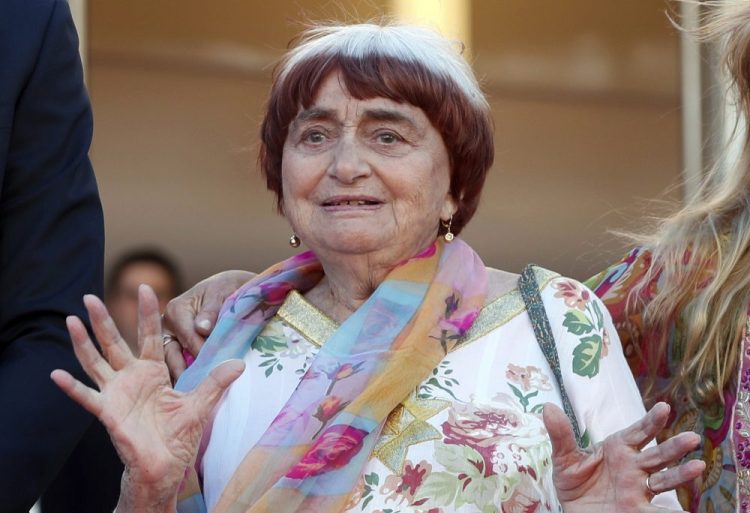PARIS — Filmmaker Agnes Varda, a central figure of the French New Wave and feminist activist who later won the Golden Lion at the Venice Film Festival, has died. She was 90.
Her production company Cine Tamaris confirmed her death on Friday after French media first reported the news.
Varda’s rich filmography includes movies such as “Cleo de 5 a 7,” ”Sans toit ni loi” (“Vagabond”) — for which she won the Golden Lion in 1985, “Jacquot de Nantes” and “Les glaneurs et la glaneuse” (“The Gleaners and I”).
Varda was a fixture for years at the Cannes Film Festival, where she presented more than a dozen films from 1958 to 2018. She took part in two Cannes juries, and the festival gave her an honorary Palme d’Or in 2015 for her life’s work.
Varda, was the first woman to receive such an honor, and regularly sought more recognition for women in the industry.
At last year’s Cannes festival, she joined jury president Cate Blanchett for a bilingual speech against sexual misconduct in the wake of the #MeToo movement.
“Women are not a minority in the world, and yet our industry says the opposite. The stairs of our industry must be accessible to all. Let’s climb,” she said.
With her distinctive half-red, half-gray hairstyle, Varda was instantly recognizable on the European film circuit, where she was often one of the few female directors in the crowd.
Varda was honored last month at the Berlin Film Festival with the Berlinale Camera award for lifetime achievement. The festival had its highest number of women directors yet, some of whom named Varda as an inspiration.
Varda’s 2017 documentary with street artist JR, “Faces Places,” was nominated for an Oscar — making Varda, then 89, the oldest woman ever nominated — and won best documentary at the Independent Film Spirit Awards.
When she couldn’t attend the Oscar nominees’ luncheon, JR brought a life-sized cardboard cutout of her onto the red carpet with him.
Born in Belgium on May 30, 1928, Varda started as a photographer after studying literature and arts. Her first movie, “La Pointe Courte,” followed a couple going through a crisis in the small port of Sete on the Mediterranean coast. The movie was cut by Alain Resnais but was regarded as too radical at the time and only had a limited release.
Varda came to prominence in 1962 with “Cleo de 5 a 7,” a real-time movie about a young woman who finds she may have cancer.
Varda continued to explore the themes of illness and life as a couple later in her career. Her biggest success came in 1985 with “Vagabond,” starring Sandrine Bonnaire, who plays the tragic role of young marginal wandering to her death.
Varda was married to French director Jacques Demy, who died in 1990. She is survived by her two children, Mathieu Demy and Rosalie Varda, themselves both involved in French filmmaking.
Send questions/comments to the editors.



Comments are no longer available on this story